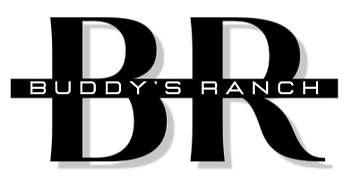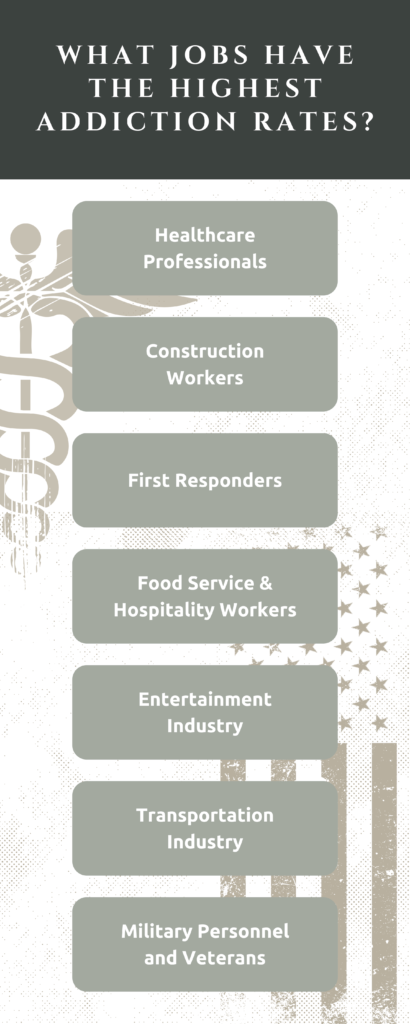Addiction can affect anyone, regardless of their profession, background, or socioeconomic status. However, certain jobs seem to experience higher addiction rates due to specific stressors, environments, and work conditions inherent to the profession. Understanding these trends can help employers and employees identify risk factors and promote healthier work environments.
At Buddy’s Ranch, we recognize the challenges of addiction and the importance of addressing the root causes.
The Relationship Between Stress and Addiction
Before diving into specific occupations, it’s essential to understand how stress plays a critical role in addiction. High-stress environments, coupled with minimal coping mechanisms, often lead individuals to seek relief in substances like alcohol, drugs, or even compulsive behaviors such as gambling.
Other factors influencing addiction rates include:
- Long hours and lack of work-life balance
- Access to substances (legal or illegal)
- Cultural normalization of substance use within certain industries
- Emotional toll due to the nature of the job
Jobs with the Highest Addiction Rates
Several industries consistently rank higher in addiction rates. Below, we’ll examine these professions, the unique challenges they face, and why individuals in these roles might turn to addictive substances.
Healthcare Professionals
Why Addiction Rates Are High
Healthcare workers are tasked with caring for others, often at the expense of their own well-being. The intense pressure to perform, coupled with long shifts and exposure to trauma, can lead to emotional exhaustion and burnout. Easy access to prescription medications also increases the risk of substance misuse.
Common Addictions
- Prescription painkillers.
- Alcohol.
- Stimulants to stay awake during long shifts.
How to Help
Hospitals and clinics can promote mental health resources, peer support programs, and regular training on stress management to reduce addiction risks.
Construction Workers
Why Addiction Rates Are High
Construction is a physically demanding and often hazardous job. Workers face risks of injury, chronic pain, and financial instability, all of which contribute to substance abuse. Additionally, the culture within some construction crews may normalize heavy drinking or drug use as a way to bond or cope.
Common Addictions
- Opioids for pain management.
- Alcohol as a coping mechanism.
- Stimulants for energy and focus.
How to Help
Employers can offer educational workshops, provide access to Employee Assistance Programs (EAPs), and ensure adequate healthcare support for pain management without opioids.
First Responders
Why Addiction Rates Are High
First responders face trauma daily, from life-threatening emergencies to witnessing loss of life. The high-stress nature of these jobs, combined with a culture that often discourages seeking emotional help, makes addiction a significant risk.
Common Addictions
- Alcohol to self-medicate for PTSD and anxiety.
- Prescription sedatives or anti-anxiety medications.
- Stimulants to combat fatigue during long shifts.
How to Help
Encouraging open discussions about mental health and offering confidential counseling can make a substantial difference in this field.
Food Service and Hospitality Workers
Why Addiction Rates Are High
The food and hospitality industry is notorious for high-pressure environments, late hours, and minimal pay. Employees often deal with difficult customers, long shifts, and erratic schedules. Substance use may be seen as a way to unwind or cope with the chaos.
Common Addictions
- Alcohol, often consumed during or after shifts.
- Recreational drugs.
- Cigarettes or vaping for stress relief.
How to Help
Creating a supportive work culture, enforcing strict no-drug policies, and offering flexible schedules can help workers manage stress without turning to substances.
Entertainment Industry
Why Addiction Rates Are High
Actors, musicians, and other entertainers often face intense scrutiny, pressure to perform, and irregular work schedules. The industry’s glamorization of drug and alcohol use also increases susceptibility to addiction.
Common Addictions
- Cocaine and stimulants for energy.
- Alcohol for relaxation or socializing.
- Prescription drugs to manage anxiety or pain.
How to Help
Promoting healthy habits and increasing access to mental health services in the entertainment industry can combat substance abuse.
Transportation Industry
Why Addiction Rates Are High
Truck drivers, pilots, and other transportation workers often work long hours in isolation. The demands of meeting tight deadlines and staying awake during extended shifts lead some to rely on substances.
Common Addictions
- Stimulants like amphetamines to stay alert.
- Alcohol during rest periods to relax.
- Prescription painkillers for chronic back or joint pain.
How to Help
Companies can implement regular drug testing, provide access to healthcare resources, and encourage drivers to take sufficient rest breaks to prevent overexertion.
Military Personnel and Veterans
Why Addiction Rates Are High
Military personnel face unique challenges, including exposure to combat, long separations from family, and the stress of reintegrating into civilian life. Veterans with untreated PTSD are particularly at risk of substance abuse.
Common Addictions
- Alcohol for self-medication.
- Prescription opioids for injuries sustained in service.
- Recreational drugs for escape.
How to Help
Veteran-focused programs that address both mental health and addiction can provide the necessary support.
Breaking the Stigma
Many workers fear seeking help due to stigma or potential job repercussions. Breaking this stigma is crucial for addressing addiction. Companies can foster a culture of openness and empathy by:
- Offering confidential support systems.
- Training managers to recognize signs of addiction.
- Normalizing conversations about mental health.
Seeking Help at Buddy’s Ranch
At Buddy’s Ranch, we understand how workplace challenges can lead to addiction. Our comprehensive programs are designed to help individuals regain control of their lives through personalized treatment plans, counseling, and long-term recovery strategies.
Addiction is not a personal failing—it’s a complex issue influenced by numerous factors, including one’s work environment. If you or someone you know is struggling, contact Buddy’s Ranch today to learn how we can help.
Understanding the link between job stress and addiction is the first step toward creating healthier workplaces and supporting those in need. By addressing addiction proactively, we can build a world where everyone, regardless of their profession, has the opportunity to thrive.






